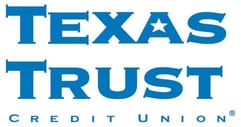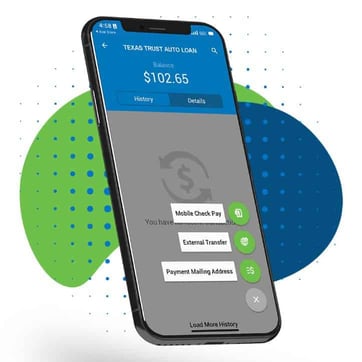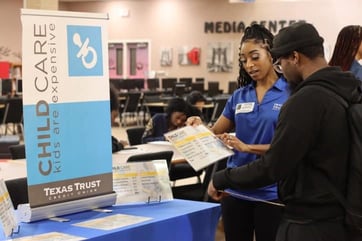
Our experts and industry insiders blog the latest news, studies and current events from inside the credit card industry. Our articles follow strict editorial guidelines.
In a Nutshell: Mastering money is a lifelong personal journey, not a one-size-fits-all experience. Texas Trust Credit Union helps members at all financial stages understand their challenges, gain the confidence to meet them, and connect with products and services to help them get there. Those commitments extend from product delivery to financial education, where the credit union excels at targeting content and instruction to meet diverse community needs. In a state where many community members struggle with financial access, Texas Trust Credit Union is intentional and inclusive in making the economy work better for everyone.
American credit unions stand out from conventional profit-making financial institutions as not-for-profit cooperatives dedicated to serving the members who make them possible. The credit union’s people first ethos means credit unions pour earnings and resources into communities and back to members.
Some say the desire for profit drives innovation in financial services and that the cooperative model may be outmoded. Texas Trust Credit Union has nearly 90 years of history to prove that’s not the case.

It’s a living history. As American consumers and credit union members emerge from the COVID-19 years into a more dynamic society facing profound challenges, Texas Trust continues to step up for members and communities by looking for more creative ways to serve them.
“The pandemic was terrible for physical wellness, but it also took a big hit on our financial well-being,” said Heidi Hardy, Texas Trust’s Vice President of Public Relations. “Because building brighter financial futures is our mission, our goal in 2024 is to reach out to our communities and look through our members’ eyes to provide services that can improve their financial health.”
Texas Trust has 20 branches, mainly in the Dallas-Fort Worth area, and manages more than $2 billion in member assets. It recognizes that not all consumers come to it with the same financial goals and challenges. It provides products and services, including robust financial education tools and information programs, to help members and community residents at all stages of their financial journey reach their goals.
“That includes communities that maybe aren’t at the table, communities that maybe we need to focus on a little more,” Hardy said. “We’re exploring all those things and putting deliberate and intentional programs in place that aren’t performative but really speak to the needs of the communities we have branches in and serve.”
Standout Products and Flexibility Empower Members
Many credit unions have interesting origin stories, but Texas Trust’s may take the cake. The credit union started in Connecticut in 1936 as the Chance Vought Aircraft Federal Credit Union. Acquisitions, organic growth, reorganization, and a name change led to today’s Texas Trust Credit Union providing financial services to more than 130,000 members in the Dallas-Fort Worth, San Angelo, and Athens areas.
Credit unions pride themselves on offering loan products that the big banks can’t beat. Member Solutions Manager Michael Rangel, the sales manager for the credit union’s consumer lending department, said Texas Trust provides a combination of low rates and flexibility to give more members options to improve themselves.

“I come from the banking world, and I can tell you firsthand that our consumer lending rates are historically lower than what you’re seeing with most other financial institutions,” Rangel said.
The credit card program is a big part of that. Texas Trust offers credit cards for every stage of life, including a Platinum Mastercard with a low standard APR and no annual fees and a Platinum Rewards card for those who prefer earning back a percentage of their spending.
Personal lending is also a draw. Rangel said Texas Trust can help with auto, personal, and home loans. Auto lending is prominent, with the credit union handling everything from dealership purchases to refinances, lease buyouts, and private party transactions.
“Many larger institutions have shied away from offering personal loans,” Rangel said. “We do those transactions daily and offer great flexibility with our loan terms.”
Public Relations Manager Toni Nichols said Texas Trust also offers creative checking products, including Bonus Checking, that provide unexpected additional value.
“In addition to credit monitoring and identity theft protection, you get telehealth and cellphone protection with Bonus Checking,” Nichols said. “We live on our cellphones nowadays, so having that automatically in there is a bonus.”
Financial Education Meets People Where They Are
Another flagship feature of credit unions is a willingness to take some of the responsibility for ensuring members receive financial education to ensure they understand how to use financial services to their advantage. When all community members understand money fundamentals, the community’s productive potential increases with its ability to provide for the less fortunate.
For example, a newsletter helps members gain tips and knowledge to meet their financial goals. Nichols said Texas Trust also offers tools to provide members with insights into the impact of loans on their financial well-being.

“Members can calculate how much their mortgage payment will be if they put a certain amount down on a house or how much they’ll pay on a credit card with a certain rate,” Nichols said.
Texas Trust goes above and beyond member education to help all community residents, not just members, learn more about money. Hardy said that although the pandemic halted in-person financial education, Texas Trust responded by delivering resources digitally, including True Dollar, a webinar series.
Now that the pandemic has largely receded, the credit union is stepping up again with in-person education.
“We were able to get back in the schools in 2023, and that year, we served more than 3,000 middle and high school students with Reality Fairs,” Hardy said.
Texas Trust works intentionally with the Texas independent school districts to design curricula that can get the job done while being fun and engaging.
“Over the last couple of years, we’ve focused on working with districts to get those preteens and teenagers more familiar with budgeting and family responsibilities and playing the game of life in a big way,” Hardy said.
Overcoming Barriers of Community and Culture
Nichols also said the committed Texas Trust retail team works with members to ensure they get what they need.
“There are many stories about members coming in, trying to get a product, and maybe they’re not qualifying,” Nichols said. “Looking at their credit report, our team members will start a conversation about how we can help them get stronger. It could be getting a secured credit card, starting with a small loan, getting a CD, building up savings, or getting into a good money management process.”
Rangel said Texas Trust loan officers make many of those same contributions in discussions with members.

“We have a ‘say yes and’ culture here at Texas Trust,” Rangel said. “When a member calls to apply for a loan, we take care of that initial need, but our loan officers also go through our members’ credit reports to find other ways we can help them save. We take pride in that at Texas Trust, and that’s how we separate ourselves from other financial institutions.”
Meanwhile, Hardy said Texas Trust plans to upgrade its approach to financial education, going above and beyond to achieve higher unity in its communities.
A recent member survey revealed a desire for enhanced partnerships to build generational wealth, create emergency savings plans to help members get through difficult times, and use credit wisely. Texas Trust has a long-term goal of coming up with ways to serve unbanked, underbanked, and marginalized communities. Partnering with organizations like the Texas-based Cornerstone, a nonprofit dedicated to uniting and inspiring credit unions to advance the greater good, is one way they plan to achieve this.
“There are barriers in these groups,” Hardy said. “But as a credit union dedicated to people helping people, we’re looking for ways to address some of those financial needs and partner with people to give them access to the products and services that will help them overcome those barriers.”






